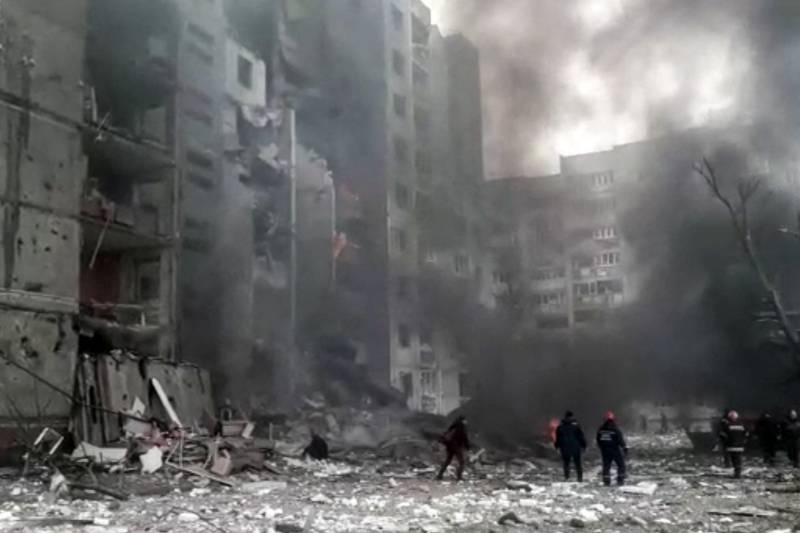War in Ukraine: how the first week unfolded

Stay tuned with 24 News HD Android App

After ringing Ukraine with tens of thousands of troops, Russia invades its neighbor in the early hours of February 24, setting off the worst conflict in Europe in decades.
As Ukraine fights for its existence, we look back on seven days that have shaken the world.
Russia invades
At dawn last Thursday, Russian President Vladimir Putin announces a "special military operation" to "demilitarise and de-nazify" Ukraine and support Moscow-backed separatists in the east.
He threatens countries that interfere with "consequences that you have never known before".
A full-scale invasion starts immediately with air and artillery strikes on several cities. Russian forces also briefly take control of an airfield on the outskirts of Kyiv.
Ukraine declares martial law and cuts ties with Russia.
Refugees flee
Refugees pour out of Ukraine into Poland, Hungary, Romania, Moldova and Slovakia. Within a week more than a million flee abroad.
On Friday, European countries begin closing their airspace to Russian airlines and EU members begin slapping sanctions on Putin and Foreign Minister Sergei Lavrov.
Ukraine resists
Ukrainian forces put up stronger-than-expected resistance, frustrating Russian plans for a lightning takeover.
In a series of selfie videos, President Volodymyr Zelensky vows to stay put and lead the resistance. "I need ammunition, not a ride," he tells the Americans, who offer to evacuate him.
As fears that Kyiv will fall quickly fail to materialise, videos emerge of Ukrainians trying to block Russian tanks with their bare hands, or berating Russian soldiers in the street.
On Saturday, Russia orders its troops to advance "from all directions".
Nuclear threat
On Sunday, Putin ratchets up tensions further by putting Russia's nuclear forces on high alert.
Hundreds of thousands of people around the world take part in Ukraine solidarity marches.
The EU says it will spend nearly half a billion euros on arming Ukraine as member nation pledge their own military aid. Unprecedented sanctions remove some of Russia's banks from the SWIFT interbank payment system.
The invasion also sparks a radical rethink in German defence policy, with Berlin massively hiking military spending.
Kharkiv blasted during talks
A first round of talks between Kyiv and Moscow held on Ukraine's border with Belarus on Monday fails to make headway.
As the talks go on, civilian districts of Ukraine's second city Kharkiv are shelled and hit by rockets. Zelensky makes an impassioned appeal for his country to be given "immediate" EU membership.
In Kyiv, the army says it has fought off several attempts by Russian forces to storm the outskirts.
The ruble collapses with Russia's central bank doubling its main interest rate to try to prop it up.
Russian gains in south
On Tuesday, satellite images show a massive column of Russian vehicles bearing down on Kyiv.
Russia is kicked out of the 2022 World Cup as its forces surround the southern city of Kherson as well as the strategic Black Sea port of Mariupol, which is left without power.
A missile strike devastates Kharkiv's city hall.
During his State of the Union address President Joe Biden labels Putin a "dictator".
Russian media silenced
On Wednesday, Russian paratroopers land in Kharkiv, which continues to be pounded by shelling and missiles, with university buildings among those hit.
Russia blocks an independent television channel and a liberal radio station on Wednesday, with a virtual blackout on news of the war.
For the first time, Moscow gives a death toll for its troops, saying 498 have been killed.
New talks
A week after the offensive began, the Russians take Kherson, the first major city to fall.
Ukrainian and Russian officials travel to the Belarus-Poland border for a second round of talks.
